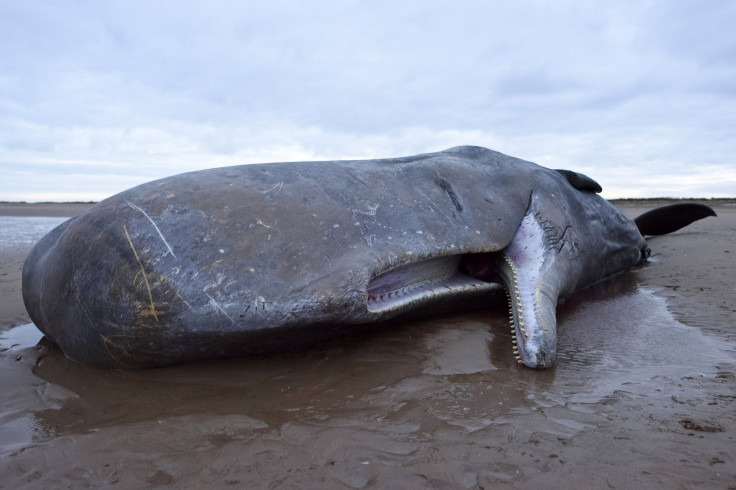60-Foot-Long Whale That 'Beat The Odds' Dies Of 'Very Rare' Cause
An elaborate five-day process undertaken to determine the cause of death of a massive sperm whale has yielded surprising results.
Darrell Blatchley, who has necropsied 75 whales so far, said he found a “very rare” outcome after examining the body of the roughly 60-foot-long sperm whale that was discovered on a beach in Philippines last week.
Blatchley said the whale died of old age, which was a surprising find because 60 of the whales he previously necropsied had their lives shortened due to plastic. He said one of those whales was found with a staggering 40kg of trash inside its body.
The whale found last week is an exception, Blatchley said in a Yahoo News Australia report published Wednesday.
“You almost take a step back and go: Wow, you beat the odds, lived a full life, reached a massive size and died peacefully on a beach in a remote part of the country,” he told the outlet. “A 70-year-old animal — that thing has survived the whaling era, it survived getting struck by ships, nuclear testing in the Pacific Ocean, and plastic."
“It was actually very humbling to see that one,” he added.
Log into Facebook to start sharing and connecting with your friends, family, and people you know.
He noted that the whale did not have any wounds but had some scratches from banging into rocks.
“After 12 years and 75 animals, he joined the only 15 that actually died of Natural Causes. He lived a long life and I will know his age later in the preservation but he washed up dead on Sikalig beach, a peaceful area in Barangay Sugal Jose Abad Santos,” Blatchley told Sun Star Davao.
Blatchley is the owner of the D’Bone Collector museum and said he spent five nights cutting the whale up in Jose Abad Santos, south of Davao City.
“It took five days of cutting and one day to load the bones. The meat was buried on site. There were five locals that were a big help [in] removing the bones. They help make the work go faster. It was stinky nasty work full of maggots” Blatchley told the outlet.
He transported the whale’s skeleton to Davao City with the government assistance and will spend the next six months cleaning the animal so it can be displayed in his museum. The display is intended to help educate locals about the dangerous effects of plastic.
“Most people think one little candy wrapper won't make a difference, but that’s until you've actually gone scuba diving, and you see the beauty of underneath the ocean,” he told Yahoo News Australia. “It is literally like the Garden of Eden. And we’re killing it.”
“Many people don't realise that something that big, can die from a piece of plastic,” he added. “So for us to recover these animals is important, so we can highlight the consequences of the actions of improper plastic disposal,” he said.























